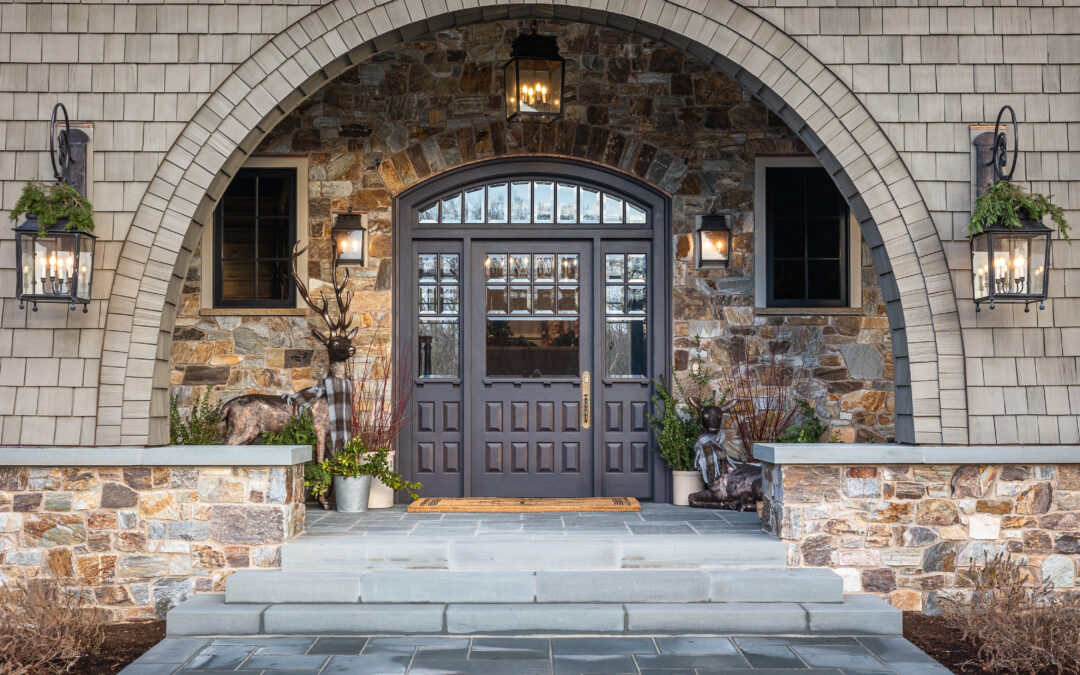There is a myth among custom door buyers that a one-piece solid wooden door is more durable, more robust, and more desirable than an engineered wooden door. However, in practical use, this isn’t true.
Below, we explore five reasons the right choice for both exterior and interior doors are those with longevity, beauty, strength, stability, and resilience built in. See why an engineered door crafted with layers of wood inside an outer veneer is the superior choice.
- Durability – Wood is naturally affected by temperature and humidity changes. The fibers of the wood absorb heat and moisture, causing it to flex, shrink, and expand depending on atmospheric conditions. This can warp the door and make it fit poorly within its jamb, letting in drafty air and even pests. With an engineered wooden door that uses multiple layers of wood and a veneer surface, the door is far more stable and resistant to dimensional changes.
- Moisture Resistance – The construction of an engineered door — wood layers set perpendicularly with the layers above and below — locks in its shape, providing strength against moisture fluctuations that so often plague solid wood doors without the benefit of alternating graining. In areas with high humidity, an engineered door more easily retains its form through many seasons.
- Consistent Appearance – A solid door made primarily of one piece of timber will often have imperfections in its graining, with knots and blemishes that can affect not only the look of the door but its stability and resilience as well. Water finds its way into these fissures and can wreak havoc on the fibers, causing expansion. Even insects can use these imperfections to invade. Engineered doors allow for better design control, ensuring that the face is uniform and without unwanted avenues to the inside.
- Customization of Design – Cladding a custom wooden door in a high-quality veneer allows for greater flexibility for architects, builders, or homeowners to choose their desired look. The style of the door can be more adaptive to best suit a building’s exterior or interior, and a wider range of finishes may be available.
- Improved Sound & Thermal Insulation – The core of an engineered wooden door is layered, which not only protects against warping and dimensional changes, but also dampens sound. For interior doors, this can be highly desirable, especially in commercial or office settings. For exterior doors, unwanted noise from outside can be blocked for a more peaceful working or living space. Likewise, an engineered wooden door is effective at thermal insulation to provide indoor climate comfort year-round.
Engineered Wooden Doors: The Superior Choice
Although a solid wooden door may seem like the most desirable choice, an engineered door outshines it for durability, temperature and moisture resistance, customization, insulation, and more. For more information and to speak with an expert when choosing the doors for your next project, contact Vintage Millwork & Restoration.
